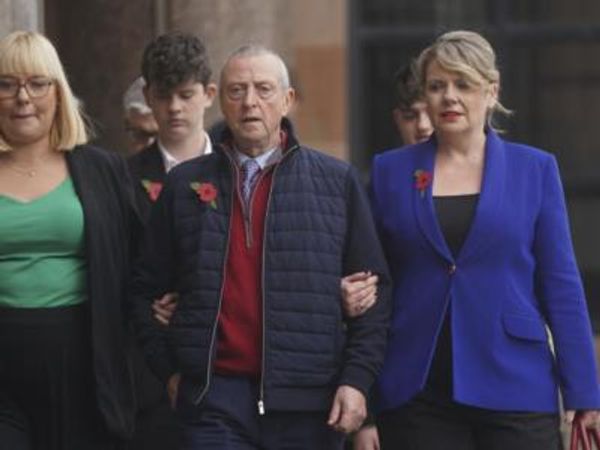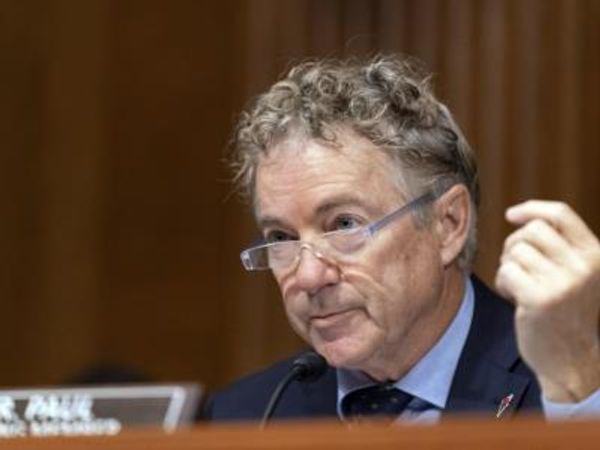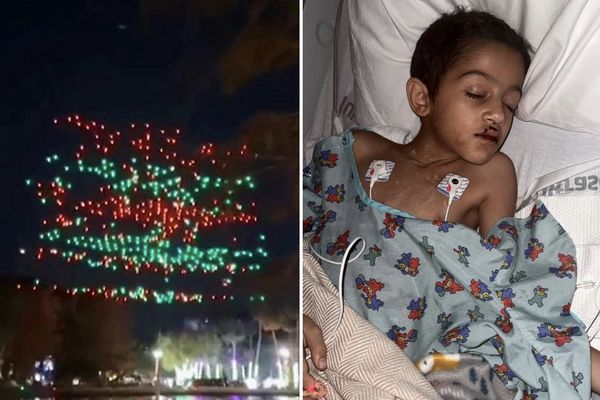Russia's war in Ukraine, which started on Feb. 24, is entering its eighth month with no end in sight.
The approach of winter suggests that this conflict, which Russian President Vladimir Putin hoped would be quick, could well continue until into 2023.
This scenario means thousands more people might die plus continued destruction.
Despite some humiliating setbacks, Moscow and its strongman are not about to back down. At the same time Kyiv continues to resist and even went on the offensive in certain regions, with military and logistical aid from NATO.
Faced with the status quo, voices calling for a ceasefire are beginning to be heard. Pope Francis has called on the Russian and Ukrainian leaders to immediately lay down their arms. The pontiff appealed to their humanity as the path through which peace can be achieved.
"The war in #Ukraine has become so serious, devastating and threatening as to cause great concern," Pope Francis posted on Twitter on Oct. 2. "In the name of God and of the sense of humanity that dwells in every heart, I renew my call for an immediate ceasefire. #Russia #Peace."
A Four-Point Peace Plan
It is in this context that Elon Musk, the most influential CEO in the world and perceived as a supporter of Ukraine, has just proposed a peace plan. He submitted it to the vote of users of the social network Twitter, where he has more than 107.6 million followers.
This plan is based on four points that will undoubtedly cause controversy.
"Ukraine-Russia Peace," the billionaire posted on Oct. 3.
- Redo elections of annexed regions under UN supervision. Russia leaves if that is will of the people.
- Crimea formally part of Russia, as it has been since 1783 (until Khrushchev’s mistake).
- Water supply to Crimea assured.
- Ukraine remains neutral."
Under Musk's terms, to achieve lasting peace Ukraine must agree to become neutral, which means not joining the European Union or NATO, western organizations that Moscow considers a threat to its sovereignty.
Kyiv would also have to recognize Crimea as part of Russia. Russia annexed the region in 2014.
Putin in turn would have to reorganize elections in annexed areas of Ukraine and ask voters whether they want to remain in Ukraine or become part of Russian territory. Moscow would have to respect the result of this vote.
Putin and his allies would also guarantee Ukraine's water supply.
Musk Sees No Alternative
Aware that his peace plan will undoubtedly anger the Ukrainian side, which has reiterated that Russia invaded it and that to end the war, the aggressor -- Moscow -- should simply withdraw.
Musk warned that there is no realistic alternative.
"This is highly likely to be the outcome in the end," Tesla's (TSLA) CEO said. "Just a question of how many die before then."
Twitter users have until Oct. 4 to vote yes or no to Musk's peace plan. But so far the reactions have been overwhelmingly negative. At last check nearly a million people had already voted.
"Fuck off is my very diplomatic reply to you @elonmusk," commented Andrij Melnyk, Ukraine's ambassador to Germany.
For many Ukrainians, the Musk plan will undoubtedly appear as a betrayal.
SpaceX, Musk's aerospace company, has provided Ukraine secure and independent access to the Internet via its Starlink division.
Two points of the peace plan -- Crimea and neutrality -- are indeed very sensitive. But in several interviews last March, Ukrainian President Volodymyr Zelensky said he was ready to discuss everything, including Russian-occupied Crimea and Donbass, with his Russian counterpart if Putin agreed to negotiate directly with him.
Crimea, NATO and the EU
Russia has made Kyiv's recognition of Crimea as Russian territory one of the conditions for a possible compromise.
Crimea is a peninsula south of Ukraine on the Black Sea. Shaped throughout its tumultuous history by different people, it was conquered in 1783 by Russia, which began deportations within the empire and exiled many people.
Crimea developed in the 19th century as a region recognized by the Russian elites as strategic for the country's empire thanks to its access to warm seas via the deepwater port of Sevastopol.
In 1954, on the 300th anniversary of the 1654 Pereyaslav Peace Treaty between Russia and the Cossacks of Ukraine, Nikita Khrushchev gave Crimea to Ukraine, a move Musk calls a mistake. For Russians that treaty symbolizes the friendship between the Russian and Ukrainian peoples. And the treaty began the integration of Ukraine into what was then the Soviet Union.
The 1991 independence of Ukraine raised the question of Crimea's identity.
In 2001, during the last census, Crimeans declared themselves to be of Russian origin at 58.5%, Ukrainians at 24.4% and Tatars at 12.1%. That majority is one factor Putin uses to justify the 2014 annexation of Crimea. The international community does not recognize the annexation.
Ukraine is not a member of NATO, but it has regularly expressed its desire to join. This represents a red line for Putin, who sees such a prospect as a threat to Russia's security.
But since 2014, cooperation in critical areas between the organization and the country has intensified. Last September, Zelensky submitted an application to join NATO.
The question of joining NATO is often coupled, in Ukraine at least, with that of joining the European Union. On Feb. 28, four days after the Russian invasion, Zelensky signed a formal application letter for membership.







